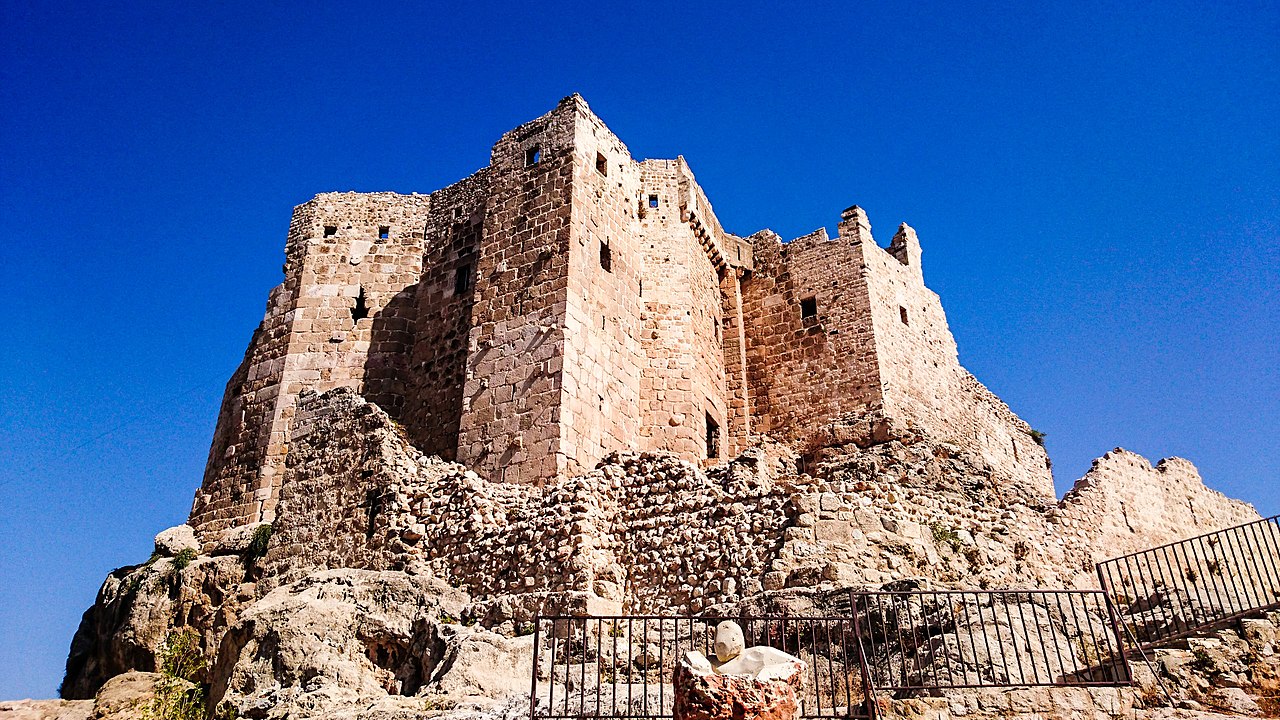Assassin's Creed Mirage: An Iraqi setting for latest instalment of hit series

The acclaimed Assassin's Creed video game series is returning to the Middle East for its next instalment, Assassin's Creed Mirage, developer Ubisoft has announced.
Official confirmation by the company on 1 September comes days after leaks revealed the upcoming project's setting and lead character, sparking frenzy among fans of the series.
Ubisoft says it will reveal more details about the game on 10 September amid reports that it will focus more on linear stealth elements - where the route is laid out for the player, who then primarily uses stealth to defeat their opponents - rather than the open world format of previous versions.
The Canadian outfit has an impressive record in stealth games, having also produced the Splinter Cell games.
In Mirage, players will take on the role of Basim Ibn Ishaq, first introduced to fans in 2020's Assassin’s Creed Valhalla, set during the Viking invasion of England.
Stay informed with MEE's newsletters
Sign up to get the latest alerts, insights and analysis, starting with Turkey Unpacked
Ibn Ishaq is meant to be a ninth century reincarnation of the Norse god Loki and member of the Hidden Ones, a precursor to the 12th century Order of Assassins.
"Samarra", Capital of Abbasid Caliphate Empire.
— S H Λ D Y ⭐ (@NasrShady) September 1, 2022
Iraq 860-870 CE.
What an Assassin's Creed Setting 😍 pic.twitter.com/4O6nZ13sx3
The Assassin's Creed games were originally set in the Middle East during the Third Crusade before expanding to other regions of the world, returning to first-century BCE Egypt for the game Assassin's Creed Origins.
The original game launched in 2007 and there are now 12 main games, 17 spin-off games and a 2016 film.
The games have been praised for their world building, incorporating period-appropriate clothes and settings.
The Order of Assassins
Though fictionalised, the game is inspired by a historic military order of Ismaili Shias known as the order of Assassins.
Existing between the 11th century and the mid-13th century, until they were finally defeated and dispersed by Mongol invaders, the Assassins were known for their daring strategies when dealing with enemies.
Militarily outnumbered, the Assassins would murder their opponents, usually high profile Muslim and Crusader leaders, after infiltrating their inner circles through disguise.
Knowing death was certain during their missions, Assassin warriors would fight to the death after completing their objectives and called themselves "fedayee", an Arabic and Persian word meaning someone who sacrifices themselves.
The English word "assassin" comes from the order established in Syria and Iran during the Crusader period.
The order was fuelled by fanatical religious zeal and was established in 1090 by an Ismaili preacher named Hassan-i Sabbah.
A convert to the faith from Twelver Shia Islam, he dedicated his life to spreading the Ismaili doctrine, but opposition from both mainstream Sunnis and Shias led to his decision to form a military order to protect his followers.
To do this effectively, he and his followers set up fortresses in mountainous areas of Syria and Iran, winning followers in the surrounding villages.
The most famous of these castles was the fortress of Alamut nestled in the Alborz mountains in modern day Iran, which became the Assassins main base.

According to legend, Sabbah is said to have walked into the castle after converting most of its defenders to his cause, overthrowing the Seljuk commander in a bloodless coup and sending him on his way with a bag of gold.
Once he had established this foothold, he acted with effective autonomy from the surrounding Seljuk Empire, using the fortress as a base to train his fedayees.
Training relied on creating fanatically devoted fighters, single-minded in their objective and a willingness to die for their faith.
Given the secretive nature of the order, many myths and legends have developed around Alamut, from which the makers of the Assassin's Creed game and other authors and artists have taken inspiration.
In the most famous, described by the early 20th century Slovene author Vladimir Bartol in his novel Alamut, Sabah created a lavish "heaven" like garden on the grounds of Alamut, populated with exotic flowers, tamed beasts and slave girls.
Potential recruits to the cause would be given a ball of hashish, which would put them in a trance like state before being introduced to the garden, which they would be told was heaven.
Before they could indulge in its offerings, they would be returned to the "real world", where they learned that they could only access heaven again by committing themselves to the Ismaili cause and preparing themselves to die for the order.
In the Assassin's Creed games, the order is actually descended from a pre-Islamic grouping, rooted in Ancient Egyptian times, which holds to religious truths that are distinct from any of the major religions but are disguised to avoid persecution.
Hashashin (those who take Hashish) has been a negative description used by Sunni and Shias, who branded the Ismailis as heretics and "troublemakers".
Regardless of this interpretation, the Assassins skilfully manoeuvred their surrounding political landscape for 200 years, and successfuly carried out assassinations of Seljuk viziers, emirs and Crusaders.
It was not until the invasion of the Mongol ruler Hulagu Khan in 1256, that the Assassins were crushed, and their castles were taken.
The Mongols had learned of the reputation of the order and were keen to make sure they would not be a nuisance during their rule.
Survivors are believed to have fled to Central Asia, India and even as far as Hungary, where they either assimilated into local populations or joined local Ismaili communities.
This article is available in French on Middle East Eye French edition.
Middle East Eye delivers independent and unrivalled coverage and analysis of the Middle East, North Africa and beyond. To learn more about republishing this content and the associated fees, please fill out this form. More about MEE can be found here.






